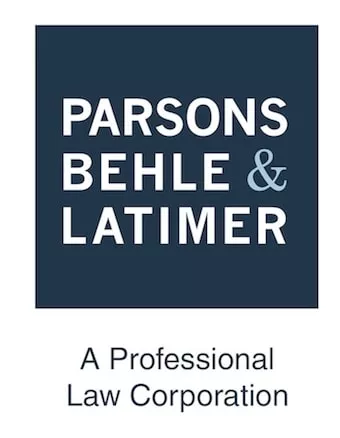As Starbucks braces for more unionization in Utah, Starbucks' unionized cafes in Arizona are served with unusual punishment for violation of unfair labor practices
Earlier this month, Starbucks employees in South Jordan, Utah filed a union election petition with the National Labor Relations Board (NLRB). The petitioning employees have elected to unionize to obtain increased wages, fair and consistent scheduling, improved benefits and a better work environment. According to the filing, 13 baristas are eligible for union representation.
If approved and enough workers vote to unionize, this South Jordan Starbucks location will become Utah's sixth unionized store, joining 440 other stores across the United States. In comparison to other states, Utah's union participation is among the lowest in the country, with roughly 4% of Utah's eligible workforce represented by a union—which is lower than 46 other states.
While Starbucks anticipates another of its locations unionizing in Utah, in Phoenix, Arizona the coffee giant is also dealing with an unusual punishment for violating labor laws where its employees participated in union activities. As a remedy for its violations, Starbucks is to post a video recording of a high-level official reading an explanation of employee rights, to be posted on an internal website.
In a 137-page opinion, an NLRB judge found that Starbucks maintained illegal rules at its stores, including overly broad policies related to dress code, confidentiality, media requests, social media and communications. The judge was less concerned about the legitimate business justifications for controlling communications on behalf of the corporation, and more concerned that, without some narrow tailoring, the rule would not separate corporate speech from personal protected activities, like communicating with the media about union organizing efforts.
Additionally, the judge found that an employee was wrongfully terminated because of her union activity, and another unfair labor practice was committed when the store gave a corrective action form to an employee who supported unionization. Interestingly, the judge also dropped a footnote about certain evidence of Starbucks "flagging" stores where union activity was happening and "vote no" messages on Starbucks' website.
Perhaps the most notable lines from the NLRB judge's opinion, though—and certainly a word of caution to new café managers who are on the brink of unionization—was that in addition to the "plethora of other evidence of animus" and "contemporaneous unfair labor practices," there was "no dispute [Starbucks] strongly and vociferously opposed unionization at its stores."
Employers Should Continue Compliance Planning Efforts with DOL's New Overtime-Pay Rule Despite Mounting Legal Challenges
A few months ago, the Department of Labor (DOL) issued its Final Rule increasing the salary threshold for certain exempt workers. In short, millions of salaried employees making between $35,568 and $58,656 will qualify for overtime-pay protections under the Fair Labor Standards Act. Click here to read the initial update about the 2024 rule. The Final Rule is set to become effective on July 1, 2024, with staged increases to the salary threshold on July 1 and Jan. 1.
As expected, several lawsuits challenging the rule have been filed. Of note, there are two cases pending in a federal court in Texas, where a similar DOL rule raising the salary threshold was struck down in 2017. The Plaintiffs challenging the 2024 rule are alleging that the DOL has exceeded its authority in issuing the rule, and that the rule's focus on the salary portion of the exemption test "effectively eliminates the duties test." And circling back to that 2016 DOL rule that was struck down in 2017—the appeal of that decision remains pending in the Fifth Circuit Court of Appeals. The Plaintiffs in that case argue that the DOL lacks authority to implement a salary requirement whatsoever for overtime exemptions. If the Plaintiffs again prevail on that argument, the Fifth Circuit's decision will indeed impact the lower court's decision on the pending challenges to the 2024 DOL rule.
Employers should nonetheless remain diligent in their compliance efforts with the new rule. Assuming there is no court action to halt the rule's implementation, it is imperative that employers are prepared to execute the required changes on the rule's effective date. Of course, employers should continue monitoring the pending challenges and remain flexible in the event a court decision pauses or extends the implementation date. Employers should likewise hold off on communicating any changes to their employees until there is certainty on what salary threshold will be in place on July 1.
The content of this article is intended to provide a general guide to the subject matter. Specialist advice should be sought about your specific circumstances.


